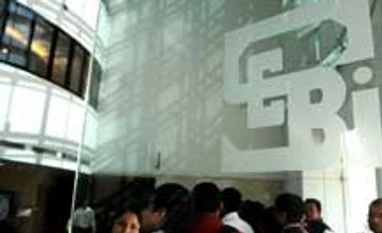In a discussion paper released on Wednesday, Sebi has proposed to issue an umbrella regulation, which will cover all employee benefit schemes such as employee stock ownership plan (Esop), employee stock purchase scheme (ESPS) and stock appreciation right (SAR).
The regulator added it is open to allowing secondary market purchase for issuing shares to employees under various benefit schemes. If the company has to issue fresh shares to employees, it will have the flexibility to do it directly to employees or through trusts.
Also Read
The move is in line with international practice and would provide flexibility to listed companies.
Sebi had prohibited secondary market purchases by employee welfare trusts or Esop in January 2013.
Now Sebi says purchase of shares from the secondary market should be allowed, subject to a ceiling of two per cent of paid up capital per financial year and overall ceiling of five per cent on secondary market purchases by all kinds of Esop schemes.
“It was felt that secondary market acquisitions by trusts being an internationally accepted practice should be considered subject to necessary safeguards to prevent misuse... secondary market acquisitions allow companies to grant options to employees without having to dilute their existing share capital," Sebi said in the discussion paper.
If the company wishes to grant shares even after hitting the ceiling, it can do it by issue of fresh shares. Sebi recommended a minimum holding period of six months for shares acquired from the market. However, the holding period will not apply once the shares are transferred to employees.
Earlier, the regulations only allowed primary issuance of shares and had a minimum vesting period of one year.
The regulator will accept public comments and suggestions on the discussion paper till December 5.
The employee benefit schemes will be subject to disclosure requirements of insider trading and also they will not be allowed to deal in shares during closure period. Takeover core regulations such as open offer, creeping acquisition and other liabilities such as enforcement proceedings will not be applicable to trusts.
The trust will have to be run by independent trustee who can be independent directors or professional familiar with stock market or employee welfare schemes.
Sebi has said promoters or directors cannot be beneficiaries of such schemes. Further, there will be no voting rights on the shares held by the trust. Also, despite managed independently, trust holding will be treated as promoter holding. If promoter holding is already 75 per cent, then trust cannot acquire more shares from the secondary market. However, when trust transfers shares to employees it will automatically become public shareholding.
As the current ESOP guidelines were silent on acquisition of shares from the secondary market, a lot companies had framed schemes to deal in their own securities. “It was apprehended that some entities may frame such schemes with the purpose of dealing in their own securities with the object of inflating, depressing, maintaining or causing fluctuation in the price of the securities by engaging in fraudulent and unfair trade practices,” Sebi said in the discussion paper.
Subsequently, Sebi had prohibited secondary market acquisitions by employee welfare trusts and had asked existing schemes.
)